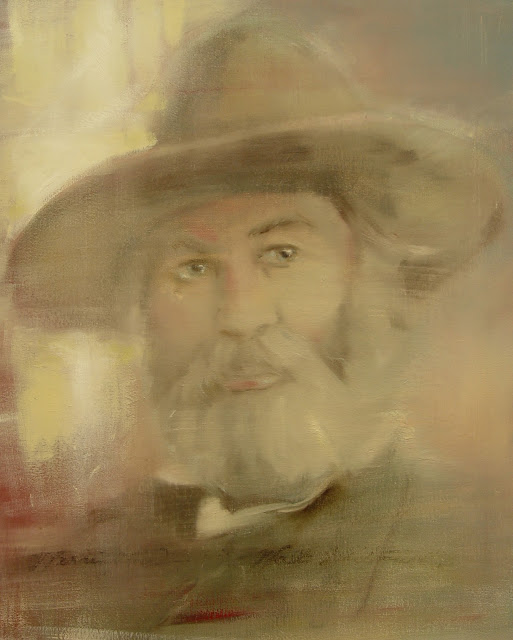Late Light

Gregg Chadwick Jordaan Window (Coffee in Amsterdam) 25cm x 25cm oil on wood 2010 Late Light by Philip Levine (January 10, 1928 - 2015) Rain filled the streets once a year, rising almost to door and window sills, battering walls and roofs until it cleaned away the mess we'd made. My father told me this, he told me it ran downtown and spilled into the river, which in turn emptied finally into the sea. He said this only once while I sat on the arm of his chair and stared out at the banks of gray snow melting as the March rain streaked past. All the rest of that day passed on into childhood, into nothing, or perhaps some portion hung on in a tiny corner of thought. Perhaps a clot of cinders that peppered the front yard clung to a spar of old weed or the concrete lip of the curb and worked its way back under the new growth spring brought and is a part of that yard still. Perhaps light falling on distant houses becomes those houses, hunching them down at dusk like sheep browsing on a fa...




